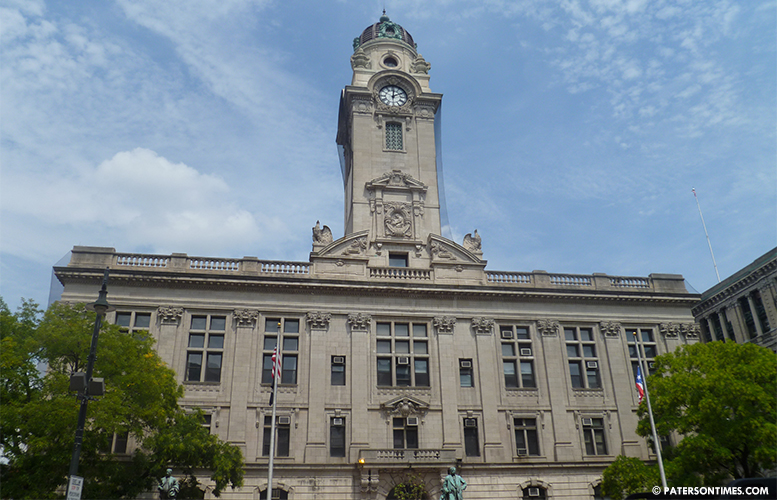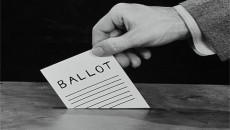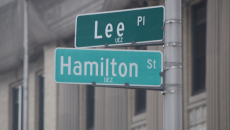Jerome King was profusely sweating in the nippy city council chambers on Tuesday evening as he fielded questions from an unfriendly governing body for his program’s role in the large number of needles found in parks, school playgrounds, and street benches.
King’s program, the Well of Hope, is blamed for the proliferation of syringes that place children playing at local parks at risk. His “needle access” program, which on Monday afternoon was changed to a “needle exchange” program, hands out an estimated 300,000 needles a year.
The program, also known as the Point of Hope Syringe Access Program, has dispensed 5 million needles, according information the Well of Hope provided to the council.
40-percent of the needles are returned, but the other 60-percent are discarded by other means.
“60-40. It can’t happen. The only way we can allow this in our city is by doing exchange only. If you give out 20,000; you got to get 20,000 back,” said Alex Mendez, councilman at-large. “I found three needles outside of my house the other day.”
“Folks can go for a five-minute walk and pick up a dozen or two dozen of these needles,” said William McKoy, 3rd Ward councilman. Some council members were under the impression the program, started in 2008 to reduce the spread of HIV/AIDS, was run as an one-to-one exchange program.
“This is actually like having a toxic chemical plant in the middle of the city and it has a leak,” said Michael Jackson, 1st Ward councilman. “This is unacceptable. Who should be cleaning up behind your mess?”
The clean-up responsibility is on “all” – the entire community, said King. Some cringed at his response. “It’s not the community’s problem to clean up behind you,” replied Jackson.
Kenneth Morris, councilman at-large, said his program is serving people who do not live in Paterson. He pointed to demographic data King provided to the council. 66-percent of those served are white and 20-percent black. Just 8.3-percent of city residents are white. 27-percent black. And 59-percent Hispanic.
In a separate graphic, King’s presentation identified clients by ethnicity: 19-percent as Hispanic and 65-percent as non-Hispanic.
“For some strange reason, people seem to believe it’s Paterson’s responsibility to take on the ills of the world. So, we end up taking care of everyone,” said Morris, who opposed the program since its inception. “We’re footing the bill for populations that have systematically shifted the problems to the city of Paterson. I’m exhausted by Paterson always being the chewing gum under everybody else’s heel.”
King’s program provides needles, cottons, fit packs, sharps containers, tourniquets, and stericups or cookers, according to a presentation handed out to council members.
“How can you help to fix that problem?” asked McKoy. King said he personally picks up needles from local parks. He also said his program has a kiosk for needle drop off. The large number of syringes found at parks and elsewhere is not the result of lack of monitoring, said King.
“Unfortunately, it has gotten out of hand because more people are using,” said King. He said safe injection sites are the only way to completely eliminate the problem of discarded used needles. Other big cities in New Jersey – Newark, Jersey City, Atlantic City, and Camden – have needle programs.
Maritza Davila, councilwoman at-large, suggested King relocate the program to Bergen County. King said he lives in Lodi.
“Is there a way maybe you can find a place in Bergen County somewhere where you can do that? I’m not saying it facetiously. I’m serious about it,” said Davila. “We continue to serve other communities and it’s getting bigger and bigger. It’s getting worse.”
Some defended the program.
“There’s a lot of ruckus. We have to know that all of the syringes or needles or whatever they are finding throughout the city do not come from his program,” said health director Donna Nelson-Ivy. “His program helps us keep HIV/AIDS numbers down.”
Jackson suggested King find a way to make the needles from Well of Hope readily identifiable.
“You got to remember. Syringes come from drugstores and other sources,” said council president Ruby Cotton. “The whole thing was to save lives from HIV.”
After being grilled by the council, King was confronted by residents outside the council chambers.
“I think he should be sweating a lot more than that. This should not be a comfortable meeting,” said Jackson. “We got to be more responsible. He has to be more responsible.”
Email: [email protected]



